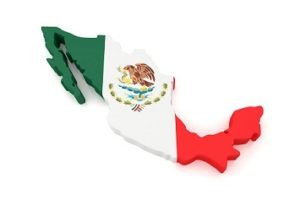The U.S. State Department has issued an updated travel warning for U.S. citizens traveling to Mexico that includes state-by-state assessments of security conditions throughout the country.
On August 22, 2017, the State Department prohibited all U.S. government personnel and their families from personal or nonessential travel to all areas identified by the Department. According to the State Department, U.S. citizens have been victims of violent crimes, including homicide, kidnapping, carjacking, and robbery, in various Mexican states, including the states of Baja California and Sonora that border California to the south.
Although resorts and tourist destinations within Mexico tend to be safe, and U.S. citizens have not been specifically targeted, U.S. citizens have been murdered during carjackings and highway robberies. These attacks usually occur at night and on isolated roads. The State Department warns that carjackers may use roadblocks, bump or move vehicles to force them to stop, or run vehicles off the road at high speeds. Criminals sometimes target newer and larger vehicles, but drivers of old sedans and buses coming from the United States have also been targeted.
Kidnappings are common in Mexico. Again, U.S. citizens have not been specifically targeted, but hotel guests generally have been targeted. Common types of kidnappings include:
- Traditional kidnappings in which the victim is physically abducted and held captive until a ransom is paid for release.
- Express kidnappings in which the victim is abducted for a short time and commonly forced to withdraw money, usually from an ATM, and then released.
- Virtual kidnappings, an extortion-by-deception scheme in which a victim is contacted by phone and coerced by threats of violence to provide phone numbers of family and friends and then isolated until the ransom is paid. This is the most common type of kidnapping used against hotel guests.
To stay safe while traveling in Mexico, the State Department offers the following do’s and don’ts:
- Do use toll roads. All U.S. citizens driving in Mexico are encouraged to use toll roads whenever possible.
- Don’t drive to or from the border. U.S. government personnel are not allowed to drive from the U.S.-Mexico border to or from the interior parts of Mexico.
- Don’t travel between some cities after dark. Again, U.S. government personnel are forbidden to do this. A list of the cities is included with the warning.
- Don’t go clubbing. The State Department deems adult clubs and gambling establishments in the states of Coahuila, Durango, Zacatecas, Aguascalientes, San Luis Potosi, Nuevo Leon, Tamaulipas, Jalisco, Colima, and Nayarit unsafe for U.S. citizens and government personnel.
- Don’t count on cell service. In many remote areas of Mexico, cell coverage is limited or nonexistent.
Although the U.S. government maintains an embassy in Mexico City and consulates or consular agents throughout the country, it warns that they may not be able to respond quickly to emergencies involving U.S. citizens because of security precautions that U.S. government personnel must take while traveling in the country.

